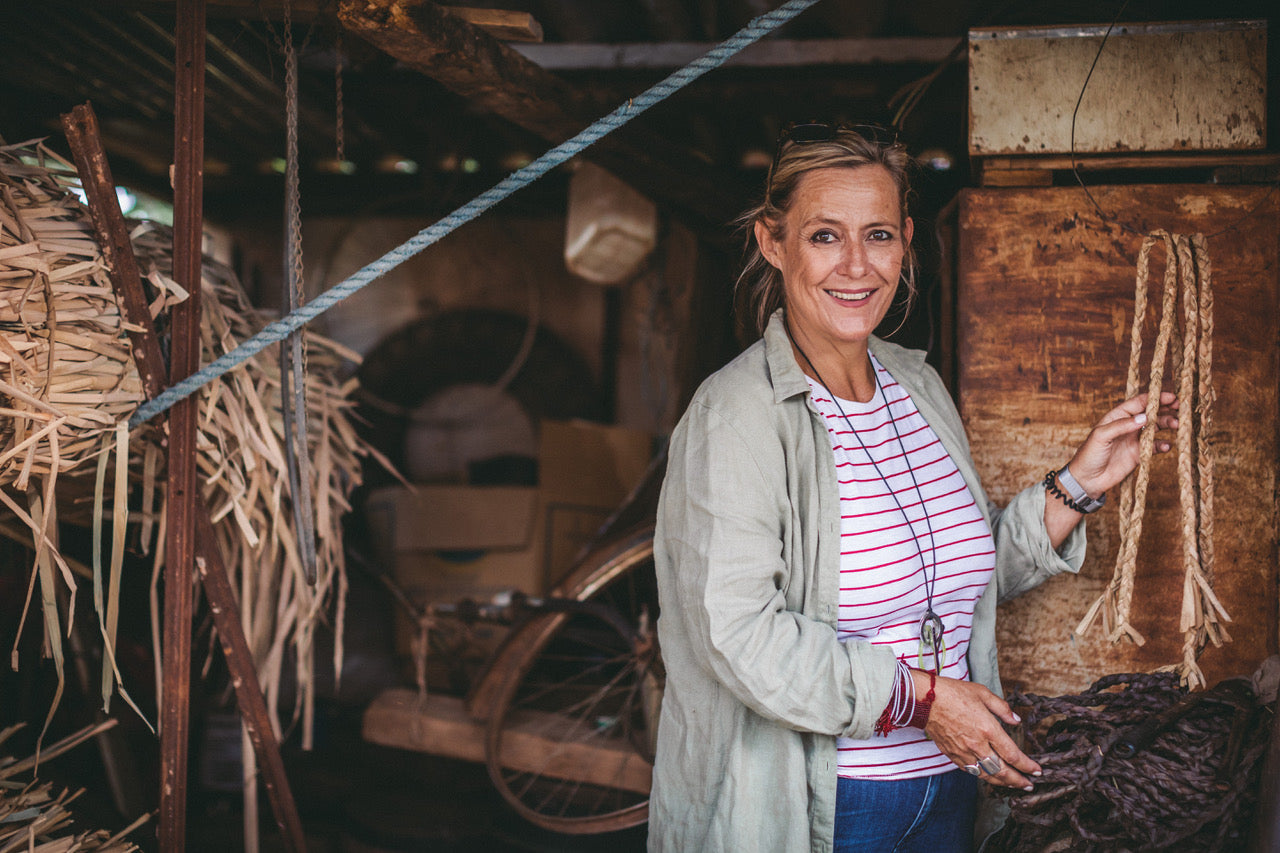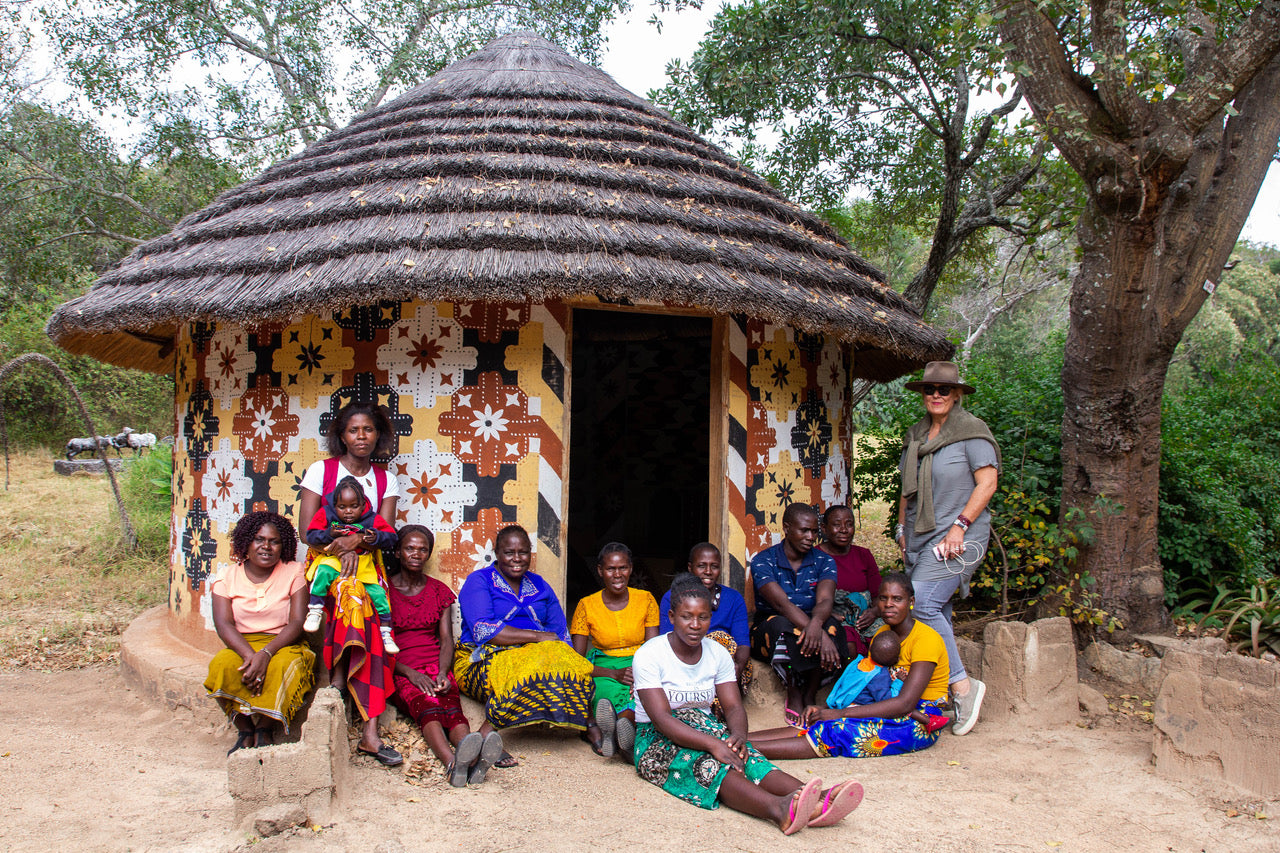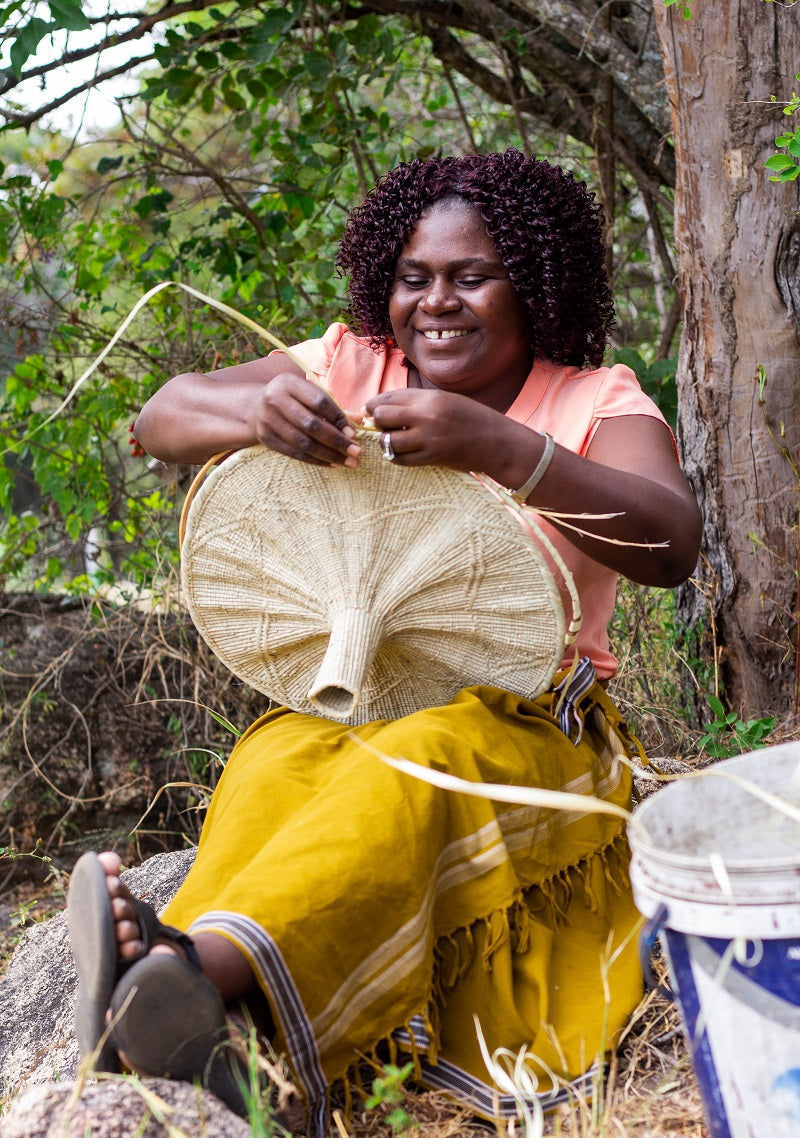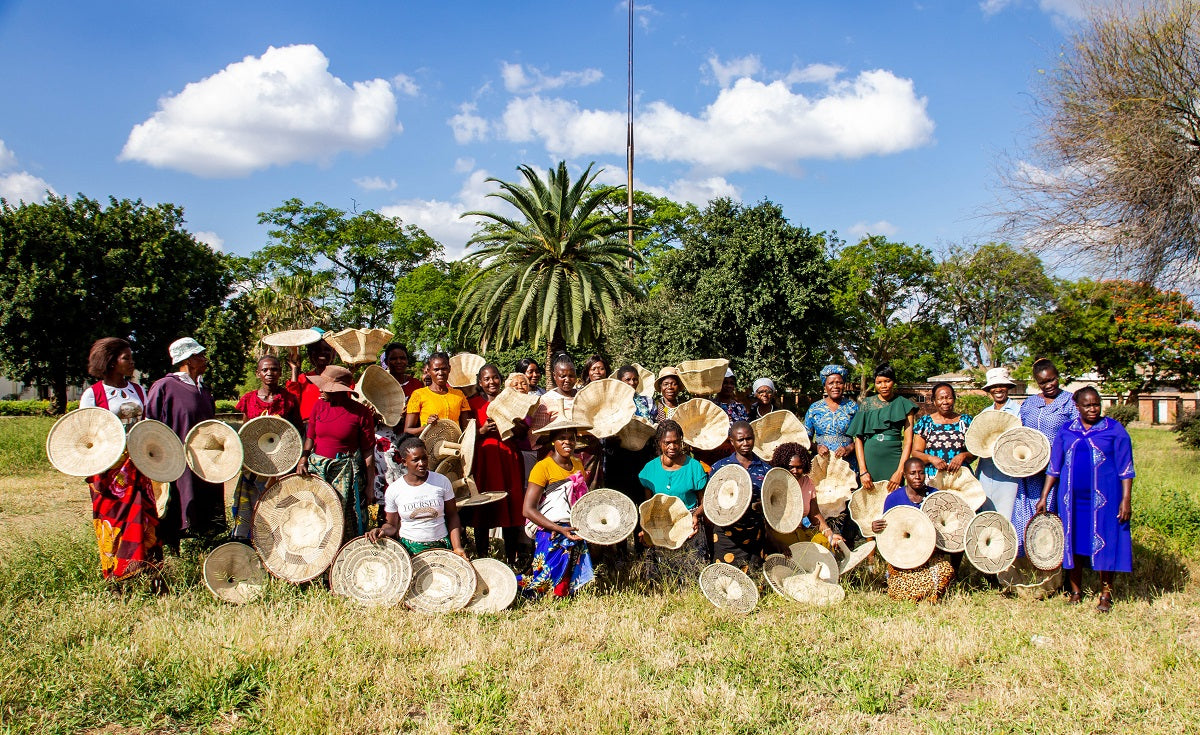 We chat to Jane Taylor about the amazing story of Collaborative Craft Projects and its team of female Zimbabwean artisans, makers of a gorgeous new range of all-natural Pooky pendant shades...
We chat to Jane Taylor about the amazing story of Collaborative Craft Projects and its team of female Zimbabwean artisans, makers of a gorgeous new range of all-natural Pooky pendant shades...
As soon as we met Jane Taylor and learned about Collaborative Craft Projects (CCP), we were blown away by her passion to build a legacy for her team of craftswomen and her commitment to preserving the traditional skills of Zimbabwean culture. So we were delighted to team up with her to create a selection of beautifully organic pendant shades, each handcrafted from the sustainable ilala palm.
We also wanted to learn more about Jane’s story and the ethos behind Collaborative Craft Projects, so we sat down for a little Q&A session…

The Collaborative Craft Projects collection for Pooky
Tell us a little about your background and how you came to live in Zimbabwe…
I have always been fascinated with other cultures and faraway lands. After studying Psychology and Anthropology at University, fuelled by curiosity and my desire for adventure, I embarked on a year ‘off’. I did a variety of typical student jobs in London, and gained a vast amount of experience in an exceptionally short time period and, through a chance encounter I was offered the opportunity to lend a helping hand on a game reserve in Zimbabwe….. and the adventure of a lifetime began!
I instantly fell in love with Africa and its people ( it wasn’t hard!) – and I also met my husband of now 34 years. In African terms, I was very wet behind the ears when I first arrived at 21, but I immersed myself fully into camp life in the African bush and learned to adapt. I embraced the culture, the people, the place and all it had to offer. I spent 14 years working remotely on our 150,000-acre Game Concession, running up to five camps at a time. In many ways, it was idyllic, but it was also lonely, and I had to become highly resourceful.
 Jane and the team responsible for the Serena pendant
Jane and the team responsible for the Serena pendant
How did Collaborative Craft Projects come about?
CCP started out of need. With no access to shops to equip our camps, we were forced to make do with hurried trips to South Africa or through auctions and house sales. I’d always loved having beautiful things in my home, so this was frustrating. I started designing and also commissioning local communities to create authentic crafts and unique homewares. Eventually, I converted this pure passion project into a formal business.
To start with I was always quietly chaperoned on the concession by one of my husband's wonderfully loyal and protective staff (not least because of the wild animals) but eventually I began to explore by myself, leading to my first introduction to the local basket weavers and mat makers. I also built relationships with nearby communities through the wives of our staff, who helped us to cut grass before the rainy season each year. When we had to relocate permanently to Bulawayo and embrace a more ‘urban’ life, I continued my passion, collaborating with women makers and creatives in Matabeleland, starting a bead project and creating a luxury range for international safari travellers.
Our first concrete step was when we began to create products for the local lodges and hotel market - and then we were asked to do some larger projects further afield. We expanded our homewares range and since then we haven't looked back, building a small but solid brand with the unwavering help of my team.
It has taken time, tenacity and years of hard work to have the courage and the resources to do this, and it's only through perseverance and determination that we have managed to achieve the CCP we see today. What began as two tiny communities has now evolved into 25 communities across Zimbabwe and the region. While I don't claim to be Zimbabwean, I am proud to call Zimbabwe my home, and through CCP, we have created a kind of sisterhood that goes beyond any traditional framework.
What is the ethos behind CCP products?
Although we are a hospitality-centred brand, women’s empowerment and the preservation of their culture and heritage are at the core of what we do. The designs, methods and techniques used go back generations and are in danger of dying out as people search for synthetic, quick-fix alternatives.
Life is tough in Zimbabwe and continues to get tougher. The women here are the absolute backbone of society. Through crafts (produced by their own two hands), we can give these women financial autonomy, which is the foundation of independence and freedom of choice. Additionally, the sense of community and belonging this work provides indirectly has a wonderful impact. The weekly meetings under a shady tree offer a chance to chat, sing, vent, and create. This is an essential part of the process and is embedded in every product they produce. Every woman has complete pride in their work; it is amazing to see women who have so little create so much.
I feel incredibly fortunate to be able to support and work alongside these women, who are all “ambassadors to artisans” . Through relationships like Pooky, we are able to provide the opportunity to develop unique and high-quality products for a worldwide audience and facilitate these products reaching the global market… That’s something we couldn’t have imagined in our wildest dreams, in our tiny landlocked country in the middle of Africa!
 Jane and team workshopping the Wonky Basket in 2019 - the design eventually became the Wonky Wave pendant shade for Pooky
Jane and team workshopping the Wonky Basket in 2019 - the design eventually became the Wonky Wave pendant shade for Pooky
 Making the Serena pendant
Making the Serena pendant
The shades created for Pooky are made from ilala palm – what makes that a special material?
The tall, skinny ilala palm tree is prolific in the tribal trust lands of the Binga district, propagated naturally through the dung of roaming wild elephants. It’s a tough, hardy tree, recognised as a sustainable resource. The ilala palms are a valuable resource in this district and its people rely heavily on these trees to sustain themselves and create income. All weavers are responsible for their own mini plantations and harvesting their own raw materials for the projects we work on together. No chemicals are used in the process, all curing is done naturally by the sun and simple hand hewn tools are made for the precise slicing and paring of the palm fronds to achieve the fine strips used in the shade and all the baskets we produce at CCP.
The chocolate brown colour used to weave the authentic BaTonga designs is achieved by using the bark of another tree which is rendered down to an oxide - a concentrated powder which is also traded in the district to help service the needs of the thousands of makers resident here. The male members of the community often assist in this process and it becomes a communal effort.
The tree is unaffected by this process and regenerates naturally over time.

Making the Wonky Wave pendant
Finally, what are your ambitions for CCP?
We will continue to expand our global reach and work hand in hand with our artisan partners to develop unique and special handwoven products for the export market, whilst collaborating with like minded brands that share our ethos and values. We have high hopes for our small brand and look forward to sharing these developments with our growing community.

See more about the work of Collaborative Craft Projects (CCP) on their website and follow them on Instagram @collaborative_craft_projects.
Shop the Pooky x Collaborative Craft Projects collection here.










